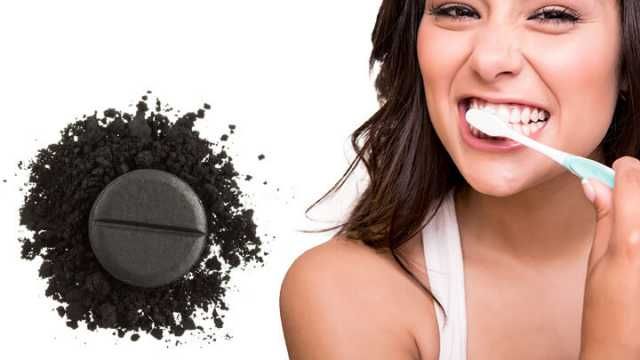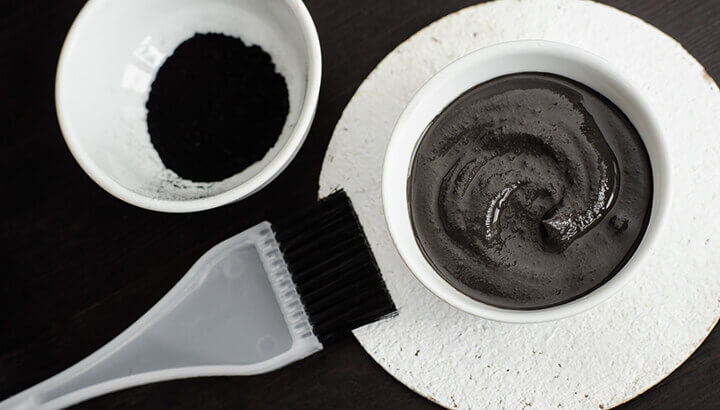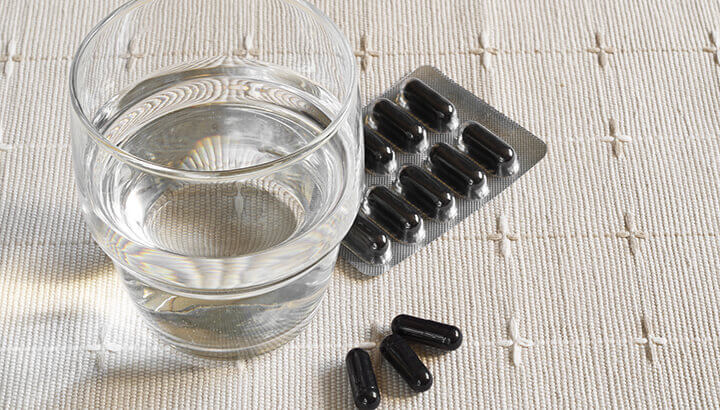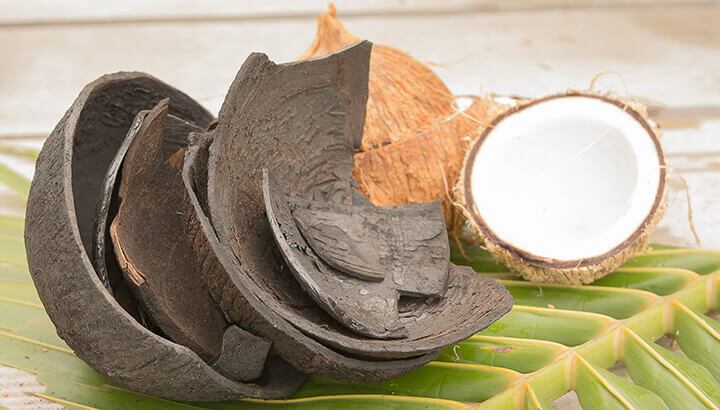
Using charcoal internally or externally may seem like an odd thing to do, but this is not your average barbeque charcoal. Activated charcoal is an effective natural treatment with many uses that range from whitening your teeth to removing chemicals and toxins from your body.
What is activated charcoal?
Activated charcoal dates back thousands of years. Historically it has been used to clean water and treat various ailments. But the first recorded use of charcoal for medicinal purposes comes from the Egyptians. Apparently, they used activated charcoal to absorb putrefying odors from rotting wounds and from within the intestinal tract. Today, charcoal is rated as “safe and effective” by the Food and Drug Administration (FDA) for acute toxic poisoning.
Activated charcoal is made from various sources and becomes “activated” when high temperatures and gas combine to expand its surface area, making it highly porous. It’s generally used to treat and trap toxins and chemicals in the body. This allows them to be flushed out so the body doesn’t reabsorb them. But there are other uses for activated charcoal as well.
Activated charcoal whitens teeth
Many people swear by activated charcoal as a means of whitening teeth. In fact, it’s been used to clean and whiten teeth for centuries. The way activated charcoal works is to help bind plaque, which makes it an effective whitening tool, suggests the General Carbon Corporation. Wet your toothbrush, put some activated charcoal on it and add a little water.
It may seem counterproductive to brush with activated charcoal, particularly when you see black charcoal smeared on your teeth. But, once you’ve rinsed your teeth — and it does rinse easily — they will be shiny, white and clean. A word of caution: It can stain your sink. So, keep soap handy to quickly clean up any charcoal messes.
Activated charcoal mask

When applied to the face, activated charcoal is extremely effective and absorbent on toxins and flushing out environmental pollutants. Activated charcoal will also help absorb excess oil and impurities on the skin, deep clean pores and heal acne. Your skin will look radiant and more even-textured. Not to mention the appearance of your pores will be minimized.
Homemade charcoal mask
Ingredients
- 2 tsp purified water
- 1 tsp bentonite clay
- 1 tsp activated charcoal powder
- 1 tsp almond oil
Instructions
- Add water to a small glass bowl.
- Sprinkle the clay over the top of the water and allow it to absorb for about 15 seconds.
- Add the charcoal powder and oil and mix well with a small rubber spatula.
- Once mixed, apply the mask liberally to your face. Allow it to remain for about 10 minutes before washing it off with soap and warm water.
Gas and bloating
Activated charcoal is also useful to alleviate uncomfortable gas and bloating. It works by binding the gas-producing byproducts in foods that cause bloating. A study published in the American Journal of Gastroenterology found that activated charcoal significantly alleviates intestinal gas following a typical gas-induced meal. Take activated charcoal with water before a gassy meal.
Help prevent hangovers

For those who wish to avoid hangovers, activated charcoal may be the answer. When taken at the same time as alcohol, research suggests that activated charcoal can significantly reduce blood alcohol concentrations.
Toxin and chemical removal
Activated charcoal stops swallowed drugs and poisons from being absorbed by the gut into the bloodstream. It’s a highly effective treatment for many poisons, suggests Poison Control. In fact, emergency rooms often use activated charcoal for overdoses. But the effectiveness of activated charcoal depends largely on how quickly it is administered after the poisonous substance has been swallowed. The sooner it’s given after a drug or chemical is swallowed, the better it will work.
Treats mold in your body
Mold isn’t something you may associate with your body, but toxic mold can cause depression, kidney and liver failure, cognitive decline and heart disease, suggests Dr. Josh Axe. Furthermore, it can cause eye irritation, headaches, vomiting, respiratory distress and severe impaired immune system function.
If you’ve had water damage in your home, or even small leaks in walls or under a sub-floor, your home may be prime for mold. Poor ventilation further contributes to the problem, especially in bathrooms, basements and laundry rooms. If you or family members are experiencing brain fog, irritability and aggressive behavior, activated charcoal will help, says the Immune Matrix. Take activated charcoal before going to bed to soak up the effects of mold toxin that are not excreted while you sleep.
Helps reduce cholesterol
Research shows that activated charcoal helps reduce bad cholesterol, while increasing good cholesterol. An earlier study found that total cholesterol decreased by 25 percent, and LDL (“bad”) cholesterol decreased by 41 percent. Meanwhile, HDL (“good”) cholesterol increased by eight percent — in just four weeks!
Here’s what you can’t use activated charcoal for
For the activated charcoal uses mentioned above, it’s generally considered safe for most individuals. Still, it’s always good to be aware that certain situations may affect how activated charcoal reacts in your body. According to the Summit Medical Group, you should never use it in the following situations.
- If someone has swallowed gasoline or acids
- If someone has taken Ipecac — a drug used to induce vomiting — within 2 hours
- If someone has a blockage in the intestines
- If someone is unconscious
- If someone is coughing or choking
In addition, the Mayo Clinic suggests not taking activated charcoal if you’re experiencing any of the following conditions:
- Intestinal bleeding or a hole in the intestines
- Extreme drowsiness
- Dehydration
- Slow digestion
- Recent surgery
Activated charcoal is safe when used short-term only. Do not use it for more than three to four days. Also, it’s important to note that activated charcoal is not your typical charcoal used in your barbecue grill. BBQ charcoal is loaded with chemicals and highly toxic. Bottom line: BBQ charcoal is dangerous to consume.
How to take activated charcoal
Activated charcoal can interfere with the absorption of nutrients and supplements. It can also interfere with prescription medications. Therefore, it’s best to take activated charcoal 90 minutes to two hours before meals or supplements and prescription medications.
Furthermore, talk to your pharmacist prior to taking activated charcoal, just to make sure there are no adverse interactions with the medicines you are taking. Also, do not mix charcoal with milk or any dairy products, chocolate syrup or other sweets to make it taste better. These foods will just prevent the charcoal from working properly.
Where to buy activated charcoal

Activated charcoal is available at most drugstores or at health and nutrition stores. If you don’t see it, ask the pharmacist; they may be able to order you a bottle. Look for natural products made from coconut shells or other natural sources like wood that has ultra-fine grains.
For emergency situations, it’s a good idea to keep activated charcoal on hand, particularly if you have small children or even pets. However, make sure you understand the medical contradictions. In addition, before taking it or administering it for poison control, call a poison control center, your doctor or an emergency room for advice.
— Katherine Marko

